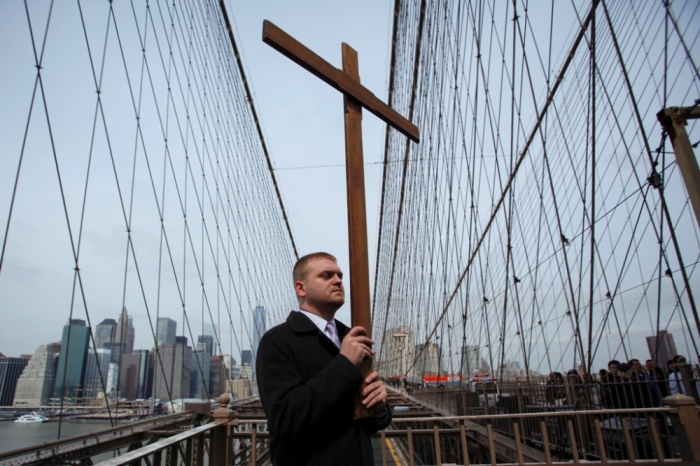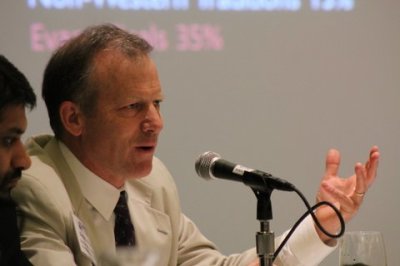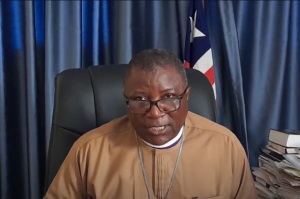Can Christians Believe in Science and the Resurrection?

WASHINGTON — Was the resurrection of Jesus Christ an anti-scientific event? This question was discussed at a March 13 conference on science and religion hosted by The American Association for the Advancement of Science's Dialogue on Science, Ethics and Religion.
At the end of a panel on "Science Engagement in Congregations," an audience member who identified himself as a rabbi said "the elephant in the room has not been discussed," which he identified as, "that the fundamental basis of Christianity is a violation of nature."
He began his remarks by recalling another event he attended at a Presbyterian church. An audience member at that event asked one of the panelists, a Presbyterian, about the resurrection. "Do you really believe that?" he asked. The panelist replied, "no, we understand [the resurrection] metaphorically," the rabbi recalled him saying.
Another panelist then turned to the pastor of the congregation and said, "did you hear that? Your congregant just said he doesn't believe literally in the resurrection of Jesus." To which the minister replied, "where do you think he learned it from?"

The resurrection, the rabbi continued, is "an anti-scientific event [in which] the laws of nature get suspended. So, it shouldn't surprise that, historically, there's a tension between science and religion in the Christian community."
Of the panelists, which included four Christians and one Jewish rabbi, the question was directed to Walter Kim, associate minister at Park Street Church in Boston.
"You are hitting the crux of the matter about the relationship between domains of knowledge," Kim said.

The resurrection does not deny the laws of nature, he continued, it assumes the laws of nature, because a belief that the laws of nature have been broken must be built upon a belief that there are laws of nature to be broken.
"To say that the laws of nature were suspended at a particular moment is not to deny the laws of nature," Kim said. "The actual predication of a miracle is dependent upon a worldview that presumes regularity, scientific exactitude. So, Jesus' resurrection from the dead wouldn't actually be noticeable if people were popping from the dead."
The Christian worldview necessarily assumes principles that are necessary for science, he continued.
"The very fact of a miracle is predicated on the notion that the Christian worldview affirms principles that are essential to scientific endeavor, [such as the] regularity of the laws of nature [and the] predictability of the laws of nature. And the fact that Jesus' resurrection contravened those things is in fact predicated on a wider worldview," he said.
Kim also noted that the resurrection points to the fact that the natural world is not all that exists.
"But it does introduce the fact that the laws of nature are not the only aspect of reality," he said.
Therefore, while the resurrection does not presume that the Christian faith is opposed to science, it does raise the question of whether science is the only domain of knowledge, Kim explained.
"And the Christian response would be, no," Kim answered. "Jesus' resurrection actually indicates that, while the regularity of the universe is something to be studied, it is not the only thing to be studied."
Another panelist, Greg Cootsona, director of science for students and emerging young adults, recommended a 2007 lecture by Tom Wright, bishop of Durham, on the Faraday Institute website called, "Can a Scientist Believe the Resurrection?"
Cootsona also made clear that the Presbyterians the rabbi in the audience mentioned did not represent his or Kim's view. They believe, he said, "that the resurrection is an actual event, not just a metaphorical one."
The conference was part of DoSER's "The Perceptions Project," which aims to promote better understanding between scientific and religious communities, especially Evangelicals. The National Association of Evangelicals was one of the partner organizations at the conference.
Other topics discussed at the conference were the origins of humankind, environmental stewardship, global health and how the media covers science and religion. Videos of the panels will be posted later to the AAAS website.





























